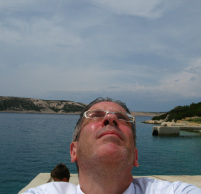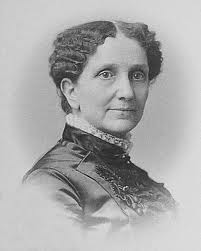 Passion. Whether it is for a special person, a valued project or a life goal – who doesn’t adore that feeling of heightened purpose and breathless, eager anticipation that we call passion? I am not talking about a mere physical reaction or emotional bond. Passion, in its spiritual sense, is the fire of inspiration and pure love for its subject. Many go to great lengths to find something to be truly passionate about. When they do, they hope to sustain the feeling as long as possible. But when the initial fire dies down into embers, does this mean that the love and inspiration is coming to an end? Is there something we can do to fan the flame and rekindle the ardor of inspired commitment to that something or someone we love? In a long relationship between individuals, in a career or with organizations, duty or responsibilty can tend to take the place of joy and spontaneity; and inspired thinking and acting can suffocate under the daily grind. In this case, what we may have once fiercely loved can tend to become a trial of patience and a test of endurance. The Bible offers some insight into what happens when fresh thought fades into habitual patterns of thinking and acting. The apostle John delivered a message from the Revelator - from Jesus Christ - to a church in Ephesus, Greece that had fallen victim to daily routine. He warned: “I know thy works, and thy labor, and thy patience, and thou hast… borne and hast not fainted. Nevertheless I have somewhat against thee, because thou hast left thy first love.” (Revelation 2:2-4)  The way I see it, the Revelator commends the fact that they are hanging in there and plugging along. But what happened to the passion of their first love, the fervor for their purpose in laboring, working together? Kindly, John doesn’t leave them to flounder under this diagnosis. He also delivers some sage advice. He says, “Remember therefore from whence thou art fallen, and repent, and do the first works.” (Revelation 2:5) Here, passion is linked to vision, a spiritual vision involving inspiration. When we recapture the inspiration that initiated or spurred on a good idea or relationship, we have reconnected with the flame – the first love that restores joy and purpose. When actions spring from renewed vision, they act like a fan drawing on a spark until the full blaze is restored. Find inspiration and you find a reason for being. Express the inspiration by doing the “first works” - approaching the relationship with a virgin attitude ("Fresh; new; unused; as virgin soil" - Webster's 1828 Revised Unabridged Dictionary) and the fire tends to spread to those around you. During the first decade of marriage, my husband and I fell comfortably and naturally into the routine of work and family responsibilities. We had a sweet, loving relationship with mostly ups and very few downs. However, as steady and generally smooth as things were, we were still two people evolving at our own pace, with interests and activities that sometimes converged and often diverged. To a certain extent, we had let our relationship become a bit dusty. Nearing our tenth anniversary, I was longing to rediscover the fire of purpose in the relationship.  This wasn’t something I felt I could discuss with my husband. I didn’t know if he was feeling as out of sorts as I was. I certainly didn’t want to hurt him or frighten him by exposing my thoughts too soon. So before I brought anything to his attention, I decided to pray about my marriage – and to pray for my marriage. I had always felt our relationship was a gift from God, so it seemed perfectly normal to take my questions up in prayer. Ours was a marriage formed in prayer. I had been praying daily to see the qualities of God expressed in a life-companion. When I met my husband, I recognized his divine qualities right away. After the marriage and over time, regular, consistent prayer for the marriage dropped off and was replaced by the general day-to-day business of the family. And the vision? The inspiration? The fire and passion? That, too, had slowly faded out as the relationship was more and more deprived of that element of prayer so essential to its formation. So the Revalator's advice to that Ephesus church was on the mark for me. I rediscovered my “first love” through doing the “first works” – practicing again the consistent prayer that had brought us together in the beginning. One of my issues with the marriage concerned the subject of spirituality. This was clearly a big part of my life. For him? Not so much. I was the church goer, he worked on Sundays. I was spiritually hungry - a genuine seeker. He seemed to have no spiritual curiosity whatsoever. So I asked God in prayer, “After ten years together, are we really on completely different life paths? Is there anything that we can do to bring these two different tracks together?”  As I did some spiritual study on the subject of marriage, I came across a statement that provoked me to wake-up. It is in Mary Baker Eddy’s Science and Health with Key to the Scriptures – a book that really brings the Bible’s message to life. On page 90, she writes, “The admission to one's self that man is God's own likeness sets man free to master the infinite idea.” I had been thinking that if only my husband would change, or admit to himself that he was spiritual, we could rediscover our bond. Now I realized it didn’t depend on him at all. He wasn’t the one thinking he wasn’t very spiritual. That was my issue. I saw that if I admitted to myself that my husband was God’s own likeness, this would set us both free to master the infinite possibilities of our marriage. I took up daily prayer to watch for, and be a witness to, my husband’s spirituality, and I began to notice so many of his spiritual qualities. Marriage, to me, became a full-on commitment to witnessing to the best in each another. My sense of marriage was reborn. I discovered that the passion I had been seeking was present in direct proportion to my prayers and spiritual witnessing. Our life together was once again full of joy and inspiration. I never said a word to him about this prayer and spiritual renewal, because my struggles on the subject were between me and God. But he noted that the marriage was better than ever, and he was right. Prayer isn’t just last minute emergency life-support. Prayer can be a permanent life-link to a passionate expression of Life, God. If you are looking for more passion in your life, for renewal of commitment, and fresh joy in your familly, your work, your church, I highly recommend a regimen of prayer that opens you to see more of the divine expressed in and around you. The admission to yourself that you and those in your midst are God’s own likeness, can set you free to live a truly inspired life – aflame with divine Love. This post first appeared on this blog under the title "Aflame with Divine Love" on November 2, 2011. It has been revised and new links have been added. If you find this post interesting or helpful, please share it!
Also, it is quite easy to subscribe to the blog if you would enjoy receiving updates. Simply put your email address in the box provided in the righthand column and click "Subscribe me!" You may also wish to: VISIT MY WEBSITE HOME PAGE FIND A LIST OF MY OTHER PUBLISHED CONTENT 7/19/2012 Radical Act: How to stay inspired At Time4thinkers.com, one of the Radical Acts of Jesus receiving focus this summer is the demand to "Challenge Pharisees". Justin Belote is one of the Radical Actors giving attention to this demand. I loved his take on it. He wrote: "A Pharisee, in Jesus’ words, is a hypocrite. All about the law and not the spirit. The talk and not the walk. The rules left behind by moments of true inspiration -- not the inspiration itself. "We all know these people. A boss, a teacher, or even a friend. Someone who just seems to miss the point — someone who sacrifices true meaning in order to live by the book. "But for me, this summer isn’t about challenging an unfair boss or setting a friend straight. It’s about challenging the Pharisee within. Do I always act out of true inspiration — out of that true oneness with the infinite? As an artist, am I always creating from the truest source, or from a surface-level, uninspired place?  "Mary Baker Eddy, who founded the Christian Science church, said “Honesty is spiritual power.” She also talked about becoming a “transparency for Truth” -- a transparency for God. She even thought it was possible “to keep human consciousness in constant relation with the divine, the spiritual, and the eternal.” Rather than just rising to the occasion once in a while. "People expect that our relationship with God should flicker off and on. That we should have dry moments -- even whole dry seasons. But Jesus didn’t. As far as we know, he lived in the sacred present. Every moment, a moment of Truth. "This summer I want to live in that sacred present, and make decisions as well as create art from there. So go ahead and challenge Pharisees this summer. Out there. In here..." Wonderful and right on target, I think. Justin referred to one of my favorite statements of Mary Baker Eddy. The full quote is, "To live so as to keep human consciousness in constant relation with the divine, the spiritual, and the eternal, is to individualize infinite power; and this is Christian Science." (First Church of Christ, Scientist and Miscellany, Eddy, 159)  When it comes to quotes, my faves are often the ones I have struggled the most to get my head around. And that is certainly the case here. Initially Eddy's statement made me mad. I often struggled with roller-coaster inspiration and I couldn't figure out how I would ever be able to keep human consciousness in line with spirituality for a sustained period of time, let alone constantly. Then I was inspired to turn the statement around, like in a math equation. I reasoned that Christian Science involves individualizing infinite power - that is, understanding God as the infinite and only power and that I reflect that power as God's image and likeness. The result of this individualizing - or seeing my relation to God and not leaving my sense of God or of my spiritual self to remain abstract - I would find my human consciousness in constant relation with the divine, the spiritual, and the eternal. It works, guys. It isn't even that hard. Here's how I do it. I make sure I individualize the power of pretty much every clear thought I have about God. With every "fact" I read or "truth" I know about God, I try to see how it applies to me as reflection. It's simple. The way "to live so as to keep human consciousness in constant relation with the divine, the spiritual, and the eternal, is to individualize infinite power; and this is Christian Science." Individualizing the power, not leaving myself out of the inspiration equation, is the key. Cool, huh? The comments that follow Justin's "Radical Acts" post are wonderful. I hope you will take a moment to check them out and add your own to the discussion! Love it? Please share.
Also, if you aren't yet a subscriber, a full-text version of the blog can be delivered to your email inbox. It's easy to sign up in the sidebar. You may also wish to: VISIT MY WEBSITE HOME PAGE READ MORE BLOG POSTS FIND A LIST OF MY OTHER PUBLISHED CONTENT |

Find me on YouTube
I have practiced Christian Science professionally in some form since 1979. But my journey with Christian Science started in a Sunday school where as a young child I was taught the Scriptures and some simple basics of Jesus' method of scientific Christian healing. A significant experience at the age of twelve opened my eyes to the great potential of this practice. After impaling my foot on a nail, I prayed the way I had learned in Sunday school. Within moments the pain stopped and healing began. By the next morning the wound had disappeared completely. Having experienced the great potential of Christian Science, there would be no turning back. |
INFORMATION |
SERVICES |
HELP |
© 2011-2024 Michelle Boccanfuso Nanouche, CSB. All rights reserved. Pages updated July 1, 2024.

 RSS Feed
RSS Feed
